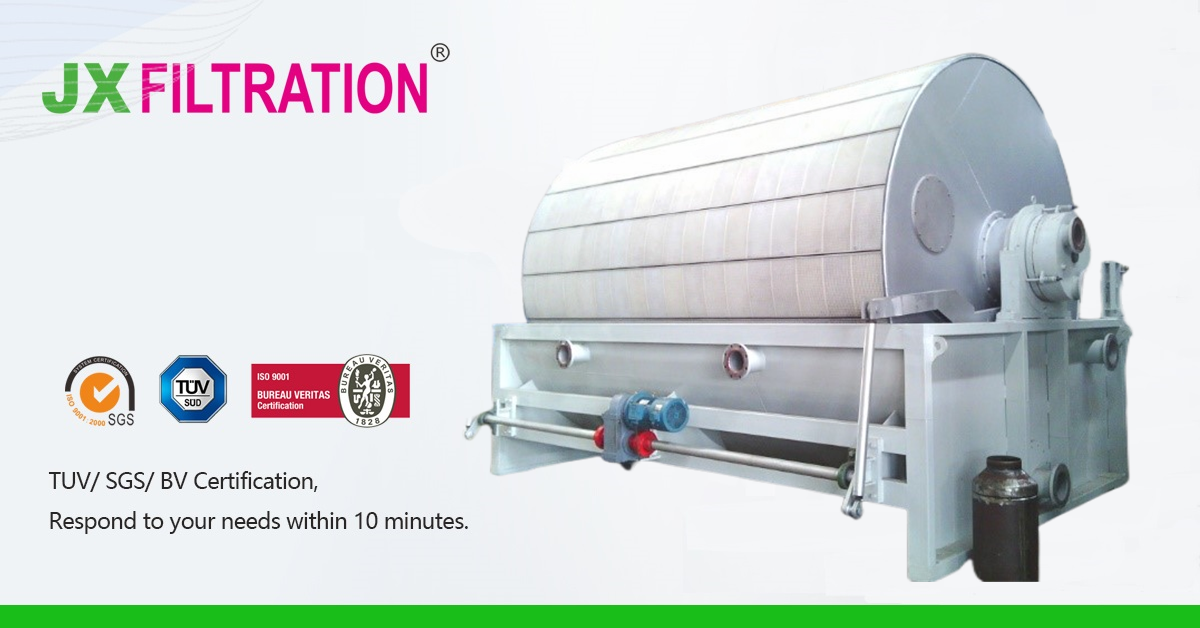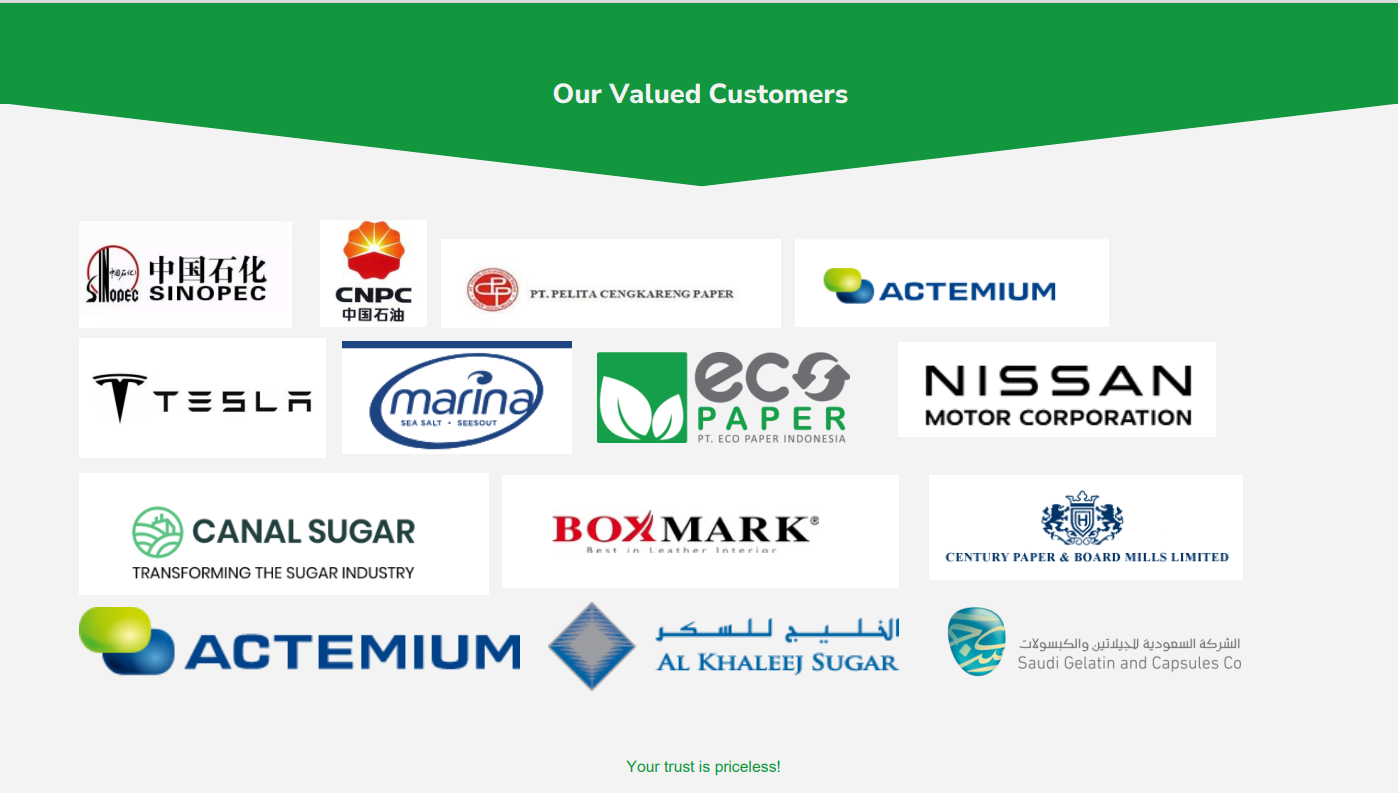What are the Advantages and Characteristics of Vacuum Drum Filters?
The vacuum drum filter is a continuous solid-liquid separation device widely used in industries such as chemical processing, mining, and environmental protection. Its core advantages and features are as follows:

Key Advantages
- Continuous Automated Operation
- Automatically performs filtration, washing, dewatering, and discharge while rotating, eliminating the need for shutdowns—ideal for large-scale continuous production.
- Reduces manual intervention and improves production efficiency.
- High-Efficiency Separation
- Uses vacuum suction to create a pressure differential, enabling rapid separation of solid-liquid mixtures, especially for fine particles or viscous slurries.
- Capable of processing high-solid-content slurries (typically 10%–40%).
- Multifunctionality
- Can integrate washing functions to rinse the filter cake during filtration, removing impurities (e.g., salts or soluble substances).
- Some models support hot-air drying to further reduce cake moisture.
- Energy-Efficient & Eco-Friendly
- Lower energy consumption compared to centrifuges; filtrate can be recycled, reducing wastewater discharge.
- Strong Adaptability
- Adjustable drum speed, vacuum level, and filter cloth type allow customization for different materials (e.g., particle size, viscosity).
Key Features
- Structural Design
- Drum Zones: Typically divided into filtration, washing, dewatering, and discharge zones, each independently controlled.
- Filter Cloth Options: Corrosion-resistant materials (e.g., polyester, polypropylene) available for acidic/alkaline environments.
- Flexible Control
- Adjustable rotation speed (usually 0.1–3 rpm) to control cake thickness and retention time.
- Adjustable vacuum level (generally -0.04 to -0.08 MPa) to optimize filtration efficiency.
- Easy Maintenance
- Simple filter cloth replacement; some models feature automatic alignment or cleaning systems (e.g., ultrasonic cleaning).
- Wide Applications
- Typical Use Cases:
- Mining: Dewatering of metal concentrates, tailings treatment.
- Chemical Industry: Catalyst recovery, separation of crystalline products.
- Environmental Protection: Sludge dewatering, industrial wastewater treatment.
- Typical Use Cases:
Selection Guidelines
Choose based on material properties (particle size, density, corrosiveness) and throughput:
- Precoat Drum Filters: For ultrafine particles or colloids.
- Belt-Discharge Types: Suitable for sticky filter cakes.
- Pressurized Drum Filters: When higher filtration pressure is needed.
The vacuum drum filter excels in balancing efficiency, energy consumption, and automation, making it a preferred choice for industrial continuous production.
Contact us today for a free consultation!
Julie
Email: sales@filtrationchina.com
Mobile / WA / WeChat / Line / Viber: +86 159 2865 0174

